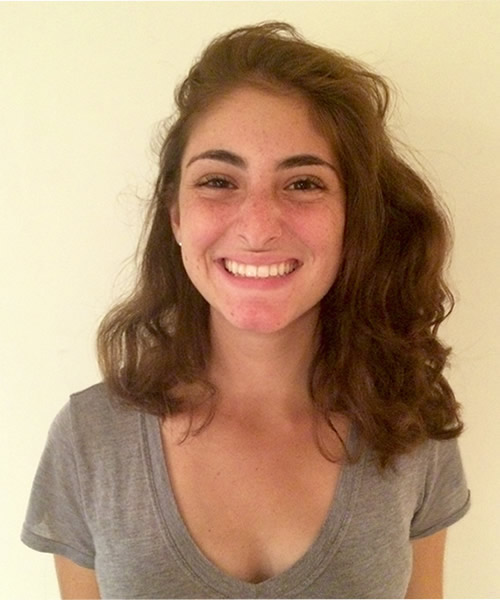My Jewish identity has always been important to me. It connects me with G-d, brings me community, reminds me of family traditions, and unites me with a long history of a strong people. It is also probably such a salient part of myself because it has often differentiated me from my peers. In kindergarten, I told my classmates that Santa Claus was not real in retaliation for not being included in their Christmas celebrations. Growing up in my predominantly Christian town, I remember explaining to my friends why I was fasting on Yom Kippur or what my bat mitzvah meant. However, I had never been in a place like Ecuador where there are only between 600 and 1,000 Jewish people in the whole country.
Funnily enough, I learned a song in Hebrew school called, “Wherever You Go, There's Always Someone Jewish.” As a 10-year-old singing along, I do not think that I fully digested that the lyrics were trying to instill a sense of stability and home in me. Yet now, very far from home, I take comfort in this message. No matter how small the community, the song has always been right.
A few weeks ago I finally tracked down one of the only synagogues in Quito and attended Shabbat services. It seemed like a very closed community; I had to bring a form of ID and answer questions about my life and religious history before I was allowed to enter. Yet once I got inside I was flooded with feelings of comfort as I was greeted with “Shabbat Shalom.” With about 20 other Ecuadorian Jews, I began to sing along to the prayers that I had learned growing up. After a few months of Ecuadorians asking me if Jewish people believed in G-d, something I had taken for granted as common knowledge, I felt happy to be in a place where I did not need to explain myself.
Yet with this beautiful familiarity also came an ugly one, as one white, South African, Jewish woman made a racist comment when I mentioned Georgetown's study abroad program in Cape Town. I was quickly reminded that my beloved Jewish community is not free from flaws. Just as the Shabbat service seemed to capture for me a sort of transnational Jewish experience, in this moment, so did this woman’s racism. Activist Rebecca Pierce describes the anti-blackness in the Jewish community as “A kind of an attempt to latch on to the conditional whiteness that is afforded to a lot of Jewish folks.”
Racism shows up in unique ways in the Jewish community just as it does in many others. Historically, this racism has manifested in many places such as black and Jewish neighborhoods in New York and against Palestinians in Israel. Though the Jewish population is made up of many races worldwide, one commonality between all of us is our increased privilege the closer we are to whiteness. This woman’s comment tore me away from the euphoria I felt to be in a Jewish space and forced me to look inward.
At first, I hesitated to criticize my community because of all it has given me. Sometimes I feel alone in my Jewishness and so, I imagine, do many Jews here in Quito with a population of about 250 Jewish people. Just as my friends growing up misunderstood what it means for me to be Jewish, I assume that many of their peers have done the same. I do not want to be further alienated from my small community or use my experience in Ecuador to justify blind forgiveness of this woman and our community’s culture of racism. I must recognize that Jewish people, like many oppressed groups, also oppress others and nothing justifies anti-blackness. I love my Jewish community so I must criticize its awful parts. I want us to be better—in New York, in Palestine, at Georgetown, and in Quito.

